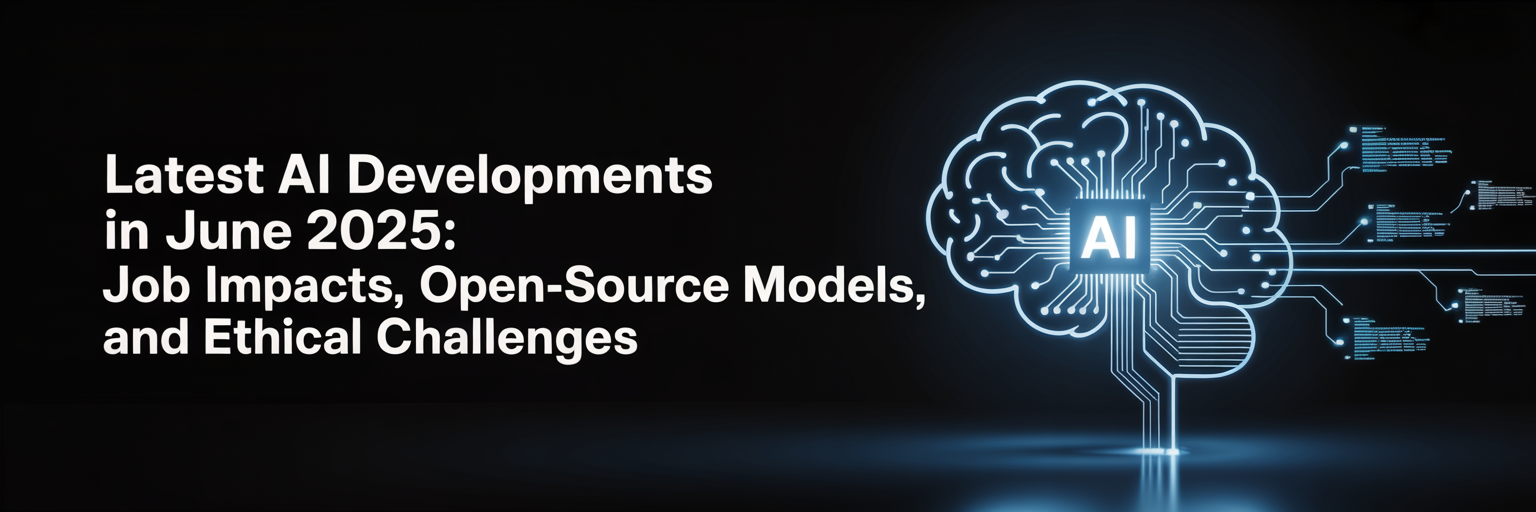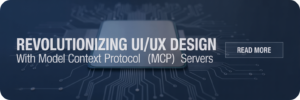As we navigate through June 2025, the artificial intelligence (AI) landscape is evolving at an unprecedented pace, reshaping industries, economies, and societies. From skyrocketing revenues of AI companies to groundbreaking open-source initiatives and pressing ethical concerns, the latest developments offer both exciting opportunities and sobering challenges. Venture capitalist Mary Meeker’s recent 340-page AI Trends report underscores this rapid transformation, noting the “unprecedented” speed of AI adoption globally (TechCrunch). In this blog post, we dive into the most significant AI news of June 2025, exploring Anthropic’s financial success and job displacement warnings, Baidu’s open-source strategy, the rise of AI-driven coding startups, ethical controversies surrounding DeepSeek, and emerging AI tools that are pushing the boundaries of innovation.
Anthropic’s Meteoric Rise and the Future of Work
Financial Milestone
Anthropic, founded in 2021 by former OpenAI researchers, has emerged as a powerhouse in the AI industry, achieving an annualized revenue of $3 billion by May 2025, up from $1 billion in December 2024 (Reuters). This 200% growth in just five months reflects strong enterprise demand for its Claude chatbot, which competes with OpenAI’s ChatGPT. The company’s valuation has soared to $61.5 billion following a $3.5 billion funding round, backed by major players like Amazon and Alphabet (VentureBeat). Anthropic’s focus on enterprise applications, such as code generation and business process automation, has driven this success, positioning it as a key player in the generative AI market, where it holds a 3.91% market share as of 2024 (TapTwiceDigital).
CEO’s Warning on Job Displacement
However, Anthropic’s CEO, Dario Amodei, has sounded a cautionary note about AI’s societal impact. In an interview with Axios, Amodei warned that AI could eliminate up to 50% of entry-level white-collar jobs within one to five years, potentially spiking unemployment to 10-20% (Axios). He highlighted sectors like technology, finance, law, and consulting as particularly vulnerable, especially for recent graduates entering the workforce. Amodei stressed that AI companies and governments must stop “sugar-coating” the potential for a “white-collar bloodbath” and prepare for significant labor market disruptions. He noted that while AI could lead to breakthroughs like curing cancer or boosting economic growth, the job losses could pose a major societal challenge, particularly during the current U.S. administration (CNN Business).
Implications for the Workforce
The potential for AI to automate intellectual tasks raises critical questions about the future of work. Amodei’s concerns align with data from Meeker’s report, which shows a 448% increase in U.S. job postings for AI-related IT roles since 2018, while traditional IT roles have declined by 9% (NatesNewsletter). This shift suggests that workers may need to upskill in AI-related fields to remain competitive. However, the rapid pace of AI adoption could outstrip retraining efforts, leaving many vulnerable. Policymakers and businesses will need to address these challenges through education, reskilling programs, and potentially new economic models to mitigate unemployment risks.
Baidu’s Bold Move: Open-Sourcing Ernie
Strategic Shift
Chinese tech giant Baidu has announced a pivotal change in its AI strategy, planning to make its next-generation Ernie AI model open-source by June 30, 2025 (Reuters). This decision marks a departure from Baidu’s previous focus on proprietary models, driven by intensifying competition, particularly from startups like DeepSeek, which offer cost-effective open-source alternatives. Baidu’s CEO, Robin Li, highlighted the potential of open-source development to accelerate AI adoption, stating, “If you open things up, a lot of people will be curious enough to try it. This will help spread the technology much faster” (Yahoo Finance).
Ernie’s Roadmap
Baidu plans to roll out the Ernie 4.5 series in the coming months, with enhanced reasoning and multimodal capabilities, followed by Ernie 5 in the second half of 2025 (SiliconANGLE). By open-sourcing Ernie 4.5, Baidu aims to attract developers and researchers globally, fostering innovation and expanding its market share. Additionally, Baidu’s AI chatbot, Ernie Bot, will be available for free starting April 1, 2025, further lowering barriers to adoption (Verdict). This move could challenge Western AI giants like OpenAI, which rely on subscription-based models.
Impact on the AI Community
The open-sourcing of Ernie aligns with a broader trend toward open-source AI, as noted in Meeker’s report, which highlights China’s leadership in releasing models like DeepSeek-R1, Alibaba’s Qwen-32B, and Ernie 4.5 (NDTV). Open-source models promote accessibility and innovation, particularly in local languages and sovereign AI efforts, but they also raise questions about quality control and ethical alignment. Baidu’s strategy could reshape the competitive dynamics of the AI industry, encouraging collaboration and potentially reducing costs for developers worldwide.
AI Revolutionizing the Coding Industry
Rise of AI Coding Startups
AI startups are transforming the coding industry, leveraging machine learning to automate and enhance software development. Cursor, with just 60 employees, has achieved $100 million in recurring revenue in under two years since its launch, while Windsurf, founded in 2021, is generating $50 million annually with its code-generation product launched in November 2024 (Reuters). These startups, led by young MIT graduates, exemplify the “gold rush” in AI-driven coding, with investors like Andreessen Horowitz backing their growth.
How AI is Changing Coding
These companies develop AI tools that generate code, assist developers, and streamline tasks like testing and debugging. For example, Y Combinator’s Winter 2025 cohort revealed that 25% of startups had codebases that were 95% AI-generated, highlighting the technology’s impact (TechCrunch). However, both Cursor and Windsurf operate with negative gross margins, spending more than they earn to fuel rapid expansion, which raises concerns about long-term sustainability. As Quinn Slack, CEO of Sourcegraph, noted, “The prices people are paying for coding assistants are going to get more expensive” (Reuters).
Implications for Developers
The rise of AI in coding could reduce the demand for traditional programming skills while creating new opportunities for those proficient in AI tool integration. Meeker’s report notes the surge in demand for AI-related roles, such as machine learning engineers and prompt engineers, suggesting that developers must adapt to remain relevant (NatesNewsletter). This shift could democratize software development by enabling non-technical founders to build applications, but it also poses challenges for traditional developers facing increased automation.
Ethical Challenges in AI: The Case of DeepSeek
Censorship Concerns
DeepSeek, a Chinese AI startup, has faced criticism for its latest model, R1-0528, which appears to impose stricter content restrictions, particularly on topics sensitive to the Chinese government (Artificial Intelligence News). AI researcher “xlr8harder” tested the model and found it less permissive than previous versions, refusing to engage in discussions about issues like internment camps in Xinjiang (Cointelegraph). This has led to accusations that DeepSeek’s models reflect a “Chinese worldview,” raising concerns about censorship and data privacy, especially since user data is stored in China (TechTarget).
Broader Ethical Implications
The controversy highlights broader ethical challenges in AI development, particularly in balancing innovation with free speech and transparency. Meeker’s report notes the split between open-source and closed AI models, with open models like DeepSeek’s fostering innovation but also raising concerns about control and alignment with governmental agendas (NDTV). The open-source nature of DeepSeek’s models allows the community to address these issues, but it underscores the need for global ethical standards in AI development.
Community Response
Despite the criticism, DeepSeek’s open-source approach offers hope for community-driven solutions. The model’s permissive license allows developers to modify its restrictions, potentially mitigating censorship concerns (Cointelegraph). However, DeepSeek’s rapid rise—surpassing ChatGPT as the most downloaded freeware app on the iOS App Store in January 2025—has also triggered geopolitical tensions, with some countries banning its use due to privacy and security concerns (Wikipedia).
Emerging AI Tools and Trends
On-Device AI with Google’s AI Edge Gallery
Google has introduced the AI Edge Gallery app, enabling Android users to run AI models offline, enhancing privacy and performance (TechCrunch). Supporting models like Google’s Gemma 3n from Hugging Face, the app allows tasks such as image analysis, code generation, and chatting without an internet connection (AndroidPolice). This reflects a growing trend toward on-device AI, making powerful tools accessible in areas with limited connectivity.
Other Notable Developments
The AI field is buzzing with new tools and updates, as highlighted in recent X posts:
- Sakana AI’s Darwin Gödel Machine: A novel approach to AI model evolution, though details remain limited (X post).
- Mistral’s Agents API: Enables developers to create autonomous AI agents for various applications (X post).
- Hume AI’s EVI 3: Advances in emotional intelligence for AI interactions (X post).
- Perplexity Labs: Exploring new AI research and potential partnerships, such as with Samsung (X post).
These developments, combined with Meeker’s insights on AI’s rapid scaling, indicate a dynamic and competitive landscape (TechCrunch).
Conclusion
The AI landscape in June 2025 is a complex tapestry of innovation and challenges. Anthropic’s financial success and warnings about job displacement highlight the dual nature of AI’s impact, offering efficiency but threatening employment. Baidu’s open-source strategy with Ernie could democratize AI development, while startups like Cursor and Windsurf are redefining coding. However, ethical concerns, as seen with DeepSeek, remind us of the need for responsible AI development. Emerging tools like Google’s AI Edge Gallery and others from Sakana AI, Mistral, and Hume AI underscore the rapid pace of innovation. As we move forward, staying informed and addressing these challenges will be crucial for harnessing AI’s potential responsibly.







Be First to Comment